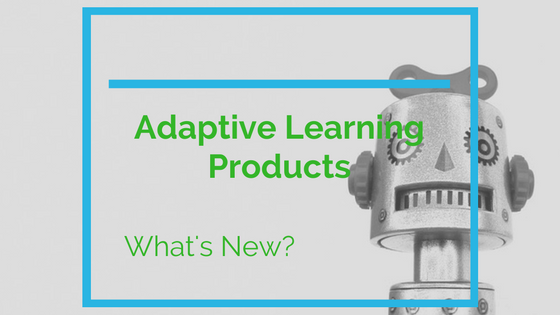
In recent years, adaptive learning products have become increasingly important for college instructors. Adaptive Learning Products are educational products that involve computers with software that adapts content and assessments to the knowledge level of the student to create a more individualized learning experience.
Education Growth Advisors, a strategic consultant and advisory firm serving the higher education community, produced a report with funding from the Gates Foundation regarding adaptive learning. The report defined adaptive learning as learning that “takes a sophisticated, data-driven and in some cases, non-linear approach to instruction and remediation, adjusting to a learner’s interactions and demonstrated performance level and subsequently anticipating what types of content and resources learners’ need at a specific point in time to make progress.”
In the past two years, several major testing companies have acquired smaller companies focusing on adaptive learning. For example, Kaplan acquired Grockit (an adaptive test-prep start-up) in 2013, and Wiley partnered with SnapWiz to create its adaptive learning system in Wiley’s existing online environment, now called WileyPLUS. These recent partnerships and acquisitions illustrate the growing importance of adaptive learning products in colleges.
Adaptive learning software can adapt in different ways; for example, some programs adapt based on the results of a quiz at the end of a unit, which then determines what a student will learn in the coming unit. On the other hand, some software monitors the responses a student gives while he or she moves through the program (e.g. how long students take to answer questions, how many hints the student needs).
In the past, the use of adaptive learning products in college classrooms has stagnated, given that curricular decisions are made by individual professors instead of at the district- or state-level. However, in recent years, adaptive learning has become increasingly used in college classrooms; many adaptive learning products consist of online textbooks what assess students’ knowledge and skills as they read and highlight content. Another way that adaptive learning products can be used in college settings is through simulations of lab environments and in providing remedial learning before complex courses like organic chemistry.
Several well-reviewed adaptive learning products have been released by McGraw-Hill and Knewton. McGraw-Hill recently released their adaptive LearnSmart product, which provides in-textbook tutoring, nonlinear chapter progressions, and automatically highlighting specific content based on students’ needs. Similarly, in 2010, Knewton, a private provider of data and statistical infrastructure to enable adaptive learning, partnered with large universities to create adaptive learning products for remediation classes. All in all, adaptive learning products are a growing presence in college classrooms, given their ability to improve student retention, performance, and learning.

